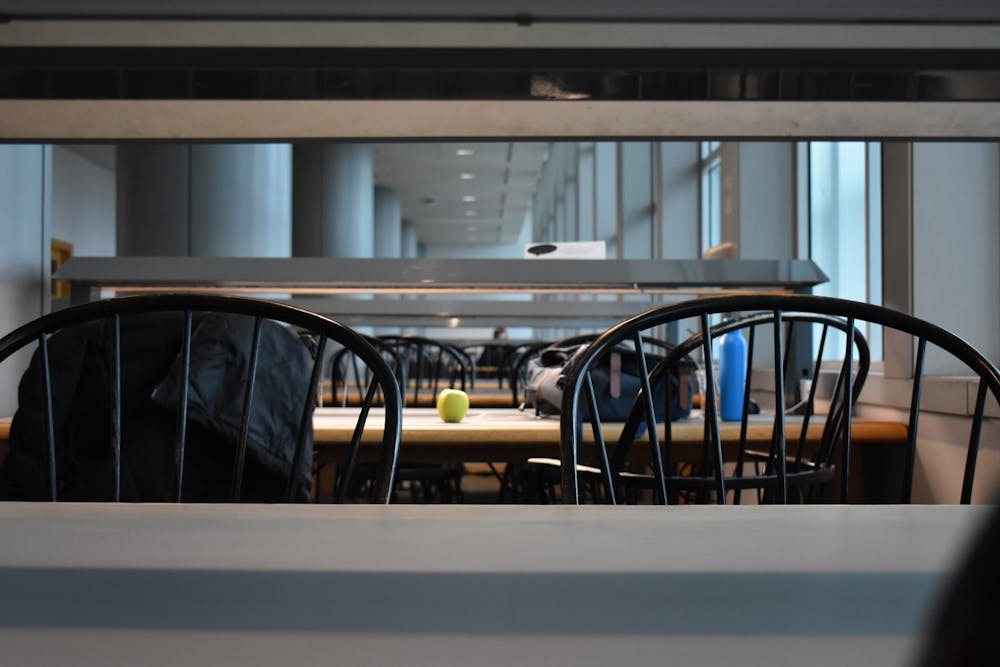The following is a guest contribution and reflects the author’s views alone. For information on how to submit an article to the Opinion Section, click here.
On April 20, in the wake of the murder conviction of Derek Chauvin for the killing of George Floyd, the University retweeted its own tweet from the day before, which touted the resources they have assembled to help the Princeton community with “processing and discussing” the verdict.
Yet the University continues to withhold one resource that is needed by so many students: time. If the University wants to help students process the mental health challenges they face, it must give them the time to do so, unencumbered by pressures of schoolwork. This is why I’m calling on the University to cancel next week’s classes and universally extend the Dean’s Date deadline, allowing time for students to take advantage of resources, practice self-care, and process world events without imminently-looming deadlines.
Over the past few weeks and continuing into the month of May, upperclass students have faced deadlines for their junior independent work and senior theses, and underclass students have been dealing with another college semester, concentration declarations, and generally getting used to the rigor of Princeton. These are constants of every spring semester.
What is different this semester? Just about everything else. Students on campus are restricted in our contact with friends and prohibited from travel beyond the Mercer County and Plainsboro boundaries. Our spring “break” has earned various nicknames that acknowledge its absurdly short length, like “spring blink” or “spring pause.” For many, it could barely be called a break, as many professors disregarded the expectation that classwork would not be required during that time.
We are living in a pandemic, a time of national tumult, and continued instances of police violence and illustrations of systemic anti-Blackness. And still, we are barreling full steam ahead into the semester’s end with students showing worrying signs of fatigue in a stress-inducing climate outside of the Orange Bubble.
In the midst of an unprecedented amount of nationwide tension since even before the Chauvin verdict, the University, able to do so much more, has responded with seeming helplessness. Administrators framed “a very shortened spring break” as if it were inevitable, despite calls from early on to give students a spring break of adequate length. In response to a record number of CPS appointments, suggestions have been given to professors to lighten the load on students.

I contest this solution. A suggested change is not an implemented change, and a lessened load is a load nevertheless.
The University offers up opportunities for students to seek out other forms of support as well. For example, Counseling and Psychological Services continues to offer drop-in hours as well as appointments, in urgent situations at the very least. However, as someone who receives regular psychological care, I wonder if the University takes into account the difficulty of receiving the care itself.
Princeton should not take lightly the time and stress of scheduling and attending an appointment. I know how difficult it can be to wait for an appointment days or weeks out, especially in times of imminent crisis. By placing the onus on students to acquire their own care, University administrators pay lip service to mental healthcare while washing their hands of the consequences of a taxing environment created by decisions and policies that they developed.
The University should also consider the guilt that comes with replacing time that could be spent working with time in counseling (let alone the guilt that comes just with sleeping) because of Princeton’s uncompromising elevation of academic rigor over student health. Personally, I have considered canceling health appointments in order to ensure my work is done on time. This is not sustainable.

The administration overlooks, too, the amount of time it can take to be able to cope with the mental health challenges for which students need counseling in the first place. Often the crises facing students are more complex than just coping with the stress of a few assignments, let alone that of a global pandemic. One appointment is not going to be enough to treat the collective trauma inflicted by living under current circumstances. The University should stop pretending it will.
There is a unifying thread here: It is all about time. By refusing to extend the break period this semester, neglecting to give students any guaranteed respite from classwork, shortening the reading period for this semester, among other restrictions stemming from pandemic protocol, the University is actively harming the mental health of its students and not doing nearly enough to rectify this harm.
Every day, University administrators have the power to reconfigure the academic calendar in order to encourage better health and well-being for its students. Every day, University administrators refuse to do so. At what point will the University come to terms with the fact that, in these troubled times, it is actively contributing to the troubles of its students? If we are to be able to process anything that has been happening, we need the time to do so on our own terms, without the weight of the expectations of this institution bearing down on us.
I am calling for the University to cancel classes — in order to give students time to recover from what has been among the most difficult semesters in our Princeton careers — and to impose a University-wide extension for academic assignments for this semester. We can already see the signs of extreme fatigue due to the unrealistic expectations of this term. The University must do something about it.
There is a simple solution: give us a break.
Josiah Gouker is a junior in the Department of African American Studies hailing from Yucca Valley, California. He can be reached at josiahg@princeton.edu.








